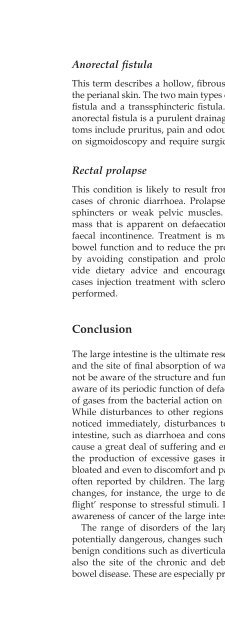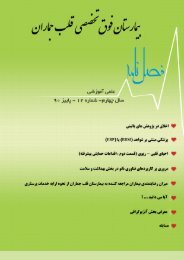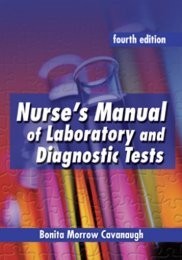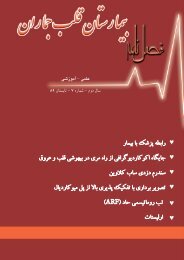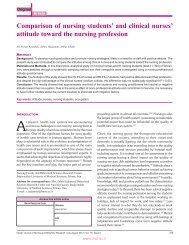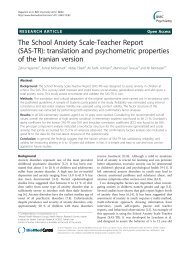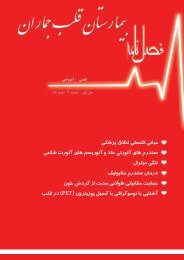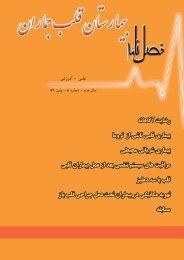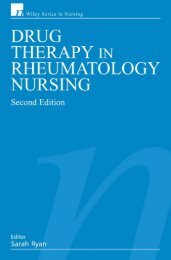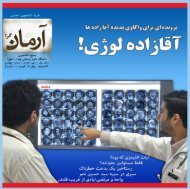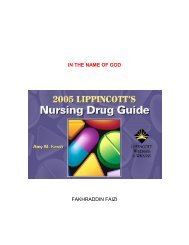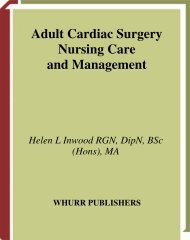Gastrointestinal Nursing.pdf
Gastrointestinal Nursing.pdf
Gastrointestinal Nursing.pdf
You also want an ePaper? Increase the reach of your titles
YUMPU automatically turns print PDFs into web optimized ePapers that Google loves.
The Large Intestine 103Anorectal fistulaThis term describes a hollow, fibrous tract which leads from the anal canal tothe perianal skin. The two main types of anorectal fistulas are an intersphinctericfistula and a transsphincteric fistula. The most predominant symptom of ananorectal fistula is a purulent drainage of pus, blood and mucus. Other symptomsinclude pruritus, pain and odour. The source of a fistula can be detectedon sigmoidoscopy and require surgical management.Rectal prolapseThis condition is likely to result from continual straining to defaecate, or incases of chronic diarrhoea. Prolapse may also result from overrelaxed analsphincters or weak pelvic muscles. Symptoms include a protruding rectalmass that is apparent on defaecation, mucus discharge, rectal bleeding andfaecal incontinence. Treatment is mainly to remedy the cause of abnormalbowel function and to reduce the prolapse. This condition may be preventedby avoiding constipation and prolonged straining. The nurse should providedietary advice and encourage adequate intake of fluids. In severecases injection treatment with sclerosant may be required. Surgery is rarelyperformed.ConclusionThe large intestine is the ultimate reservoir for the waste products of digestionand the site of final absorption of water from foodstuffs. Whilst patients maynot be aware of the structure and function of their large intestine, they will beaware of its periodic function of defaecation and also as the site of productionof gases from the bacterial action on some of the waste products of digestion.While disturbances to other regions of the gastrointestinal tract may not benoticed immediately, disturbances to the defaecatory functions of the largeintestine, such as diarrhoea and constipation, will be noticed rapidly and cancause a great deal of suffering and embarrassment. Eating foods which causethe production of excessive gases in the large intestine can lead to feelingbloated and even to discomfort and pain – the usual cause of the ‘sore stomach’often reported by children. The large intestine is also sensitive to emotionalchanges, for instance, the urge to defaecate which accompanies the ‘fight orflight’ response to stressful stimuli. In addition, there is an increasing publicawareness of cancer of the large intestine.The range of disorders of the large intestine is wide, from localised, butpotentially dangerous, changes such as polyps, and age-related but relativelybenign conditions such as diverticular disease. However, the large intestine isalso the site of the chronic and debilitating conditions called inflammatorybowel disease. These are especially problematic due to the fact that their causes


